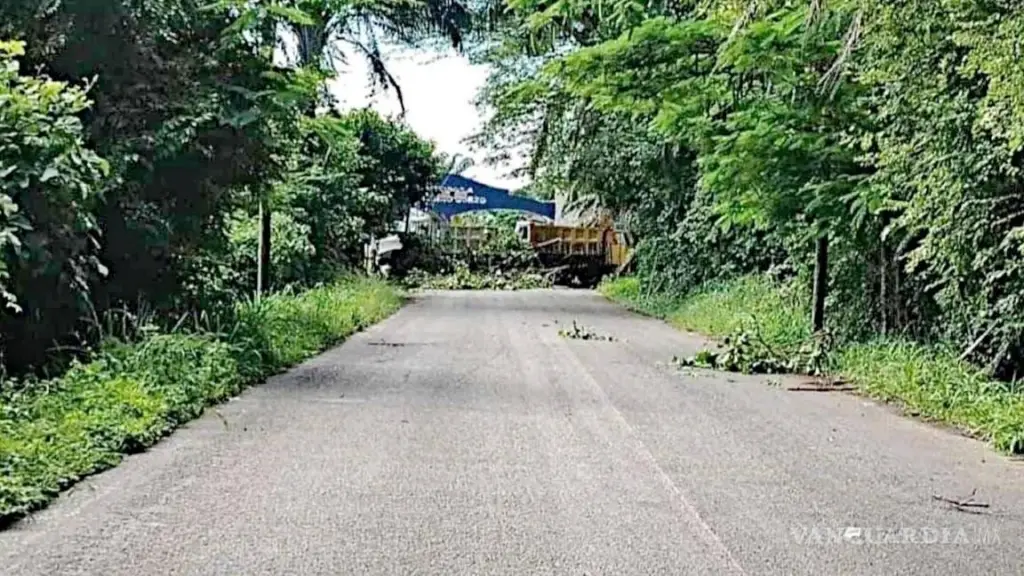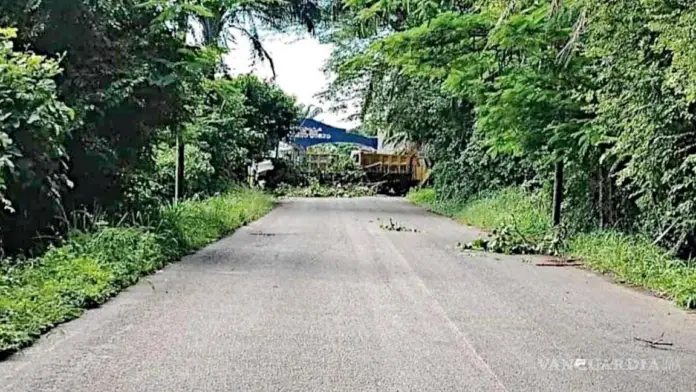
The criminal groups in dispute have control of the main cities, roads, commerce and the border of Chiapas with Guatemala.
In the region, soldiers have been the targets of shooting and drone attacks.
Entire populations are threatened for collaborating in blockades that prevent the passage of federal forces, while families flee in caravans amid gunfire.
Communities have become ghost towns, while in others there is panic buying of food and gasoline, as well as closed businesses and lonely streets.
The narco-blockades on the border with Guatemala are orchestrated by at least three criminal groups that fight for control of that territory.
One of the critical points is Chicomuselo, the scene of clashes between members of the “Chiapas and Guatemala Cartel”, made up of deserters from the Jalisco Nueva Generación Cartel (CJNG), and the Sinaloa Cartel, which has been trying to take control of them for several months.
At least four other municipalities, Angel Albino Corzo (Jaltenango), Motozintla, Frontera Comalapa and Amatenango, are at the mercy of drug traffickers and the violence spread to El Porvenir, Comalapa, Mazapa de Madero, Bejucal, La Grandeza, Bellavista, Siltepec and La Concordia.
In the midst of the shootings, residents made panic purchases of gasoline, which was limited by the criminals themselves to avoid the displacement of residents, although some managed to flee to search for Tuxtla Gutierrez by caravan, through La Concordia or Comitan.
Security sources said that this cartel intends to defend Chicomuselo – its supposed stronghold – from the intrusion of other groups for the control of the mining companies established there, which pay weekly quotas to release the load to La Concordia.
The violence unleashed in the mountainous area of Chiapas includes 137 missing persons in the last two months.
Violence increases the number of disappearances
The violence unleashed in the mountainous area of Chiapas led to an increase in the number of disappearances of people in the last few days.
Just last Monday, five relatives of Mario Roldán Roblero, identified as a member of the Central Struggle Council of the National Coordinator of Education Workers (CNTE), were reported missing in the municipality of Comitán, after they left Frontera Comalapa to attend a court hearing.
According to Section VII of the CNTE, the missing persons are Osiel Roblero López, Erick Alexander López Roblero, Sandra Luz Roblero López, Muriel Ernesto Gómez and Manolo Coronel.
Another 14-year-old boy was reported missing on Tuesday in Comalapa, where he went to the market from a nearby community to buy shoes.
A couple traveling in a gray Jetta also disappeared on the way from Comalapa to Comitán.
According to official reports, Ana Lilia Samayoa Calderón and José Manuel Vázquez Moreno lost contact with their families on August 15 on that highway, which was cut off by criminals.
So far in August, the National Search Commission has registered 25 missing persons in different municipalities of Chiapas, while local sources have counted 137 cases in the last two months, most of them in the corridor that goes from Tapachula to the capital Tuxtla Gutiérrez.
Meanwhile, the Fray Bartolomé de las Casas Human Rights Center warned that the communities forcibly displaced by violence are not a scandal for organizations and movements.
“From various reports, the shameful figure of 21,000 indigenous people displaced in Chiapas in the last two years and the murder of 176 defenders during this six-year term have been documented,” she said.
The organization also denounced the recruitment of young people by organized crime, the violence generated in the last electoral process and the criminalization of members of the social movement.
“The negligence of the state and federal governments and impunity have normalized violence, irreversible contamination of the environment, a deep water crisis in the southeastern region, the loss of flora and fauna, and territorial control by companies and organized crime.”
Source: vanguardia






